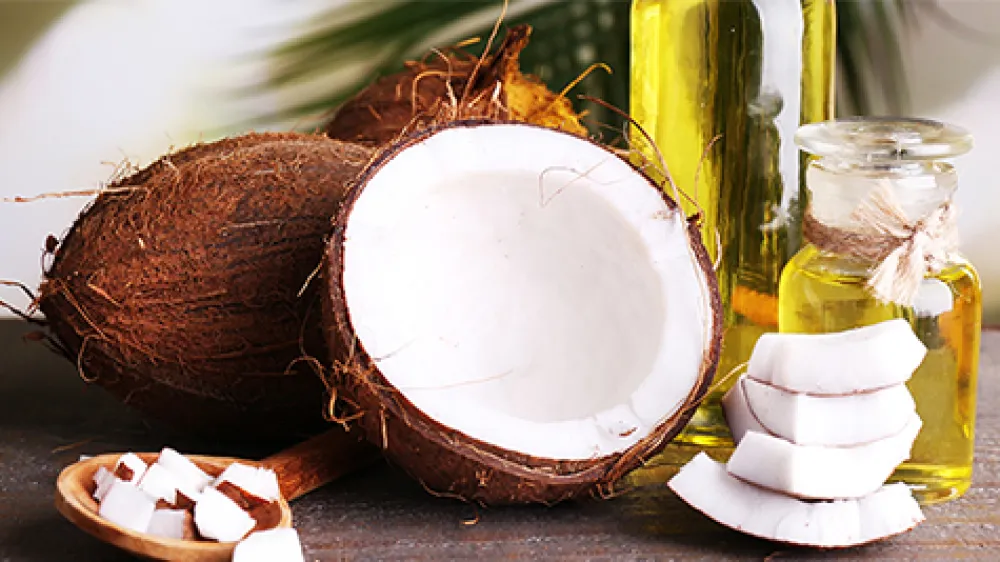Providing your location allows us to show you nearby locations and doctors.
Coconut oil: The skinny on saturated fat

07/08/2020
The consumption of coconut oil has caused controversy in the health and nutrition world over the last few years.
Recently, it has made its way to the top of list of questions asked by patients, family members and friends. They said: “I use coconut oil because it’s healthier than olive oil” and “Coconut oil is a saturated fat, so I avoid it because I have high cholesterol.”
These statements are contradictory.
Yes, coconut oil does contain saturated fat – actually, this oil has more saturated fat per serving than butter and bacon. So is it as nutritious as some professionals and companies claim? We’ll get to that.
To help lower cholesterol, it is important to avoid saturated fats, according to the Academy of Nutrition and Dietetics, the world’s largest organization of food and nutrition professionals. The saturated fats the organization lists are:
- butter
- stick margarine
- shortening
- partially hydrogenated oils
- tropical oils, including coconut and palm oils
Coconut oil benefits
While the academy lists coconut oil in the tropical oil category, what sets coconut oil apart from other saturated fats is that more than half of it is made up of medium chain fats, also known as medium chain triglycerides, or MCTs. This type of saturated fat is different from other fats, which are mostly long chain fats. MCTs are smaller molecules and therefore require less energy and fewer enzymes to break down for digestion. They are quickly metabolized. In other words, they are easily burned as energy and less likely to be stored as fat. Because MCTs in coconut oil are more quickly metabolized, they can make you feel fuller, faster. This is the reason why coconut oil can aid in weight loss.
Improving cholesterol levels may be another advantage of coconut oil. There are not many controlled studies that prove this benefit, but some observational studies have shown the consumption of coconut oil is linked to higher levels of HDL cholesterol, the so-called “good” cholesterol. We’ll be keeping an eye out for more conclusive research.
Coconut oil has many other health benefits, including immunity. It contains antimicrobial lipids, as well as lauric, capric and caprylic acids, which have antifungal, antibacterial and antiviral properties.
Lauric acid is converted into monolaurin in the body. Some research shows this helps fight against harmful viruses such as herpes, influenza and HIV, as well as harmful bacteria such as Listeria monocytogenes and H.pylori, a bacterium that can cause stomach ulcers.
By dealing with numerous bacteria, fungi, and parasites that may cause indigestion, coconut oil aids in the digestion process and even helps absorb fat soluble vitamins, minerals and some amino acids.
How to purchase
When purchasing coconut oil, remember to choose unrefined, cold-pressed coconut oil. Some coconut oils are labeled as “virgin” coconut oil. The term “virgin” in regard to coconut oil is not an industry standard and does not mean the oil is any better. However, you may want do some research into the environmental impacts of coconut oil production.
Word of caution
Like all so-called “super foods,” coconut oil alone does not cause miraculous weight loss. It takes a proper diet, regular exercise and adequate time to support healthy weight loss.
In summary, coconut oil can be a part of your healthy diet and has numerous health benefits, but keep in mind it does contain 120 calories per tablespoon. So for those of you trying to lose weight, it’s important not to go overboard. Moderation and variety are always the keys to living a healthy life.